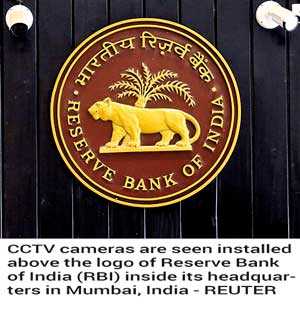Tuesday Feb 24, 2026
Tuesday Feb 24, 2026
Thursday, 8 August 2019 00:03 - - {{hitsCtrl.values.hits}}
MUMBAI (Reuters): The Reserve Bank of India (RBI) on Wednesday cut its benchmark interest rates for a fourth straight meeting, and by slightly more than expected, highlighting the depth of its concern about economic growth that’s slid to its slowest pace in nearly five years.
The six-member monetary policy committee (MPC) cut the repo rate INREPO=ECI by an unconventional 35 basis points to 5.40%, just above a 25 basis point cut predicted by 80% of the 66 analysts polled by Reuters last month. 
The RBI’s move came hours after the New Zealand central bank’s decision on Wednesday to cut its rates by a steep 50 basis points, while flagging the possibility of going nuclear and taking rates below zero, a radical shift that drove the Kiwi dollar NZD=D3 to three-and-a-half year lows.
“Addressing growth concerns by boosting aggregate demand, especially private investment, assumes the highest priority at this juncture,” the RBI’s MPC said in its statement, noting that the inflation outlook remains benign for now despite the recent rate cuts.
Asia’s third largest economy grew at a significantly slower-than-expected 5.8% annual pace in the January-March quarter. And most analysts expect data due later this month to show that growth in April-June faltered even further.
The 35 basis point rate cut is “a signal that the Reserve Bank of India’s MPC is quite concerned with the growth outlook,” said Suvodeep Rakshit, a senior economist with Kotak Institutional Equities in Mumbai.
Indeed, the RBI lowered its economic growth forecast to 6.9% from 7% for the current fiscal year, and said it sees inflation remaining inside its target range over a 12-month horizon.
Indian Finance Minister Nirmala Sitharaman, in a newspaper interview last week, expressed that she would like to see a “significant” reduction in RBI policy rates, in order to bolster a weak economy.
Asked about the unconventional rate cut size at a press briefing, RBI Governor Shaktikanta Das defended the move, saying the MPC viewed a standard 25 bps cut as being “inadequate in view of the evolving global and domestic macro-economic” conditions, while a 50 bps cut was seen as potentially “excessive”, given past RBI actions.